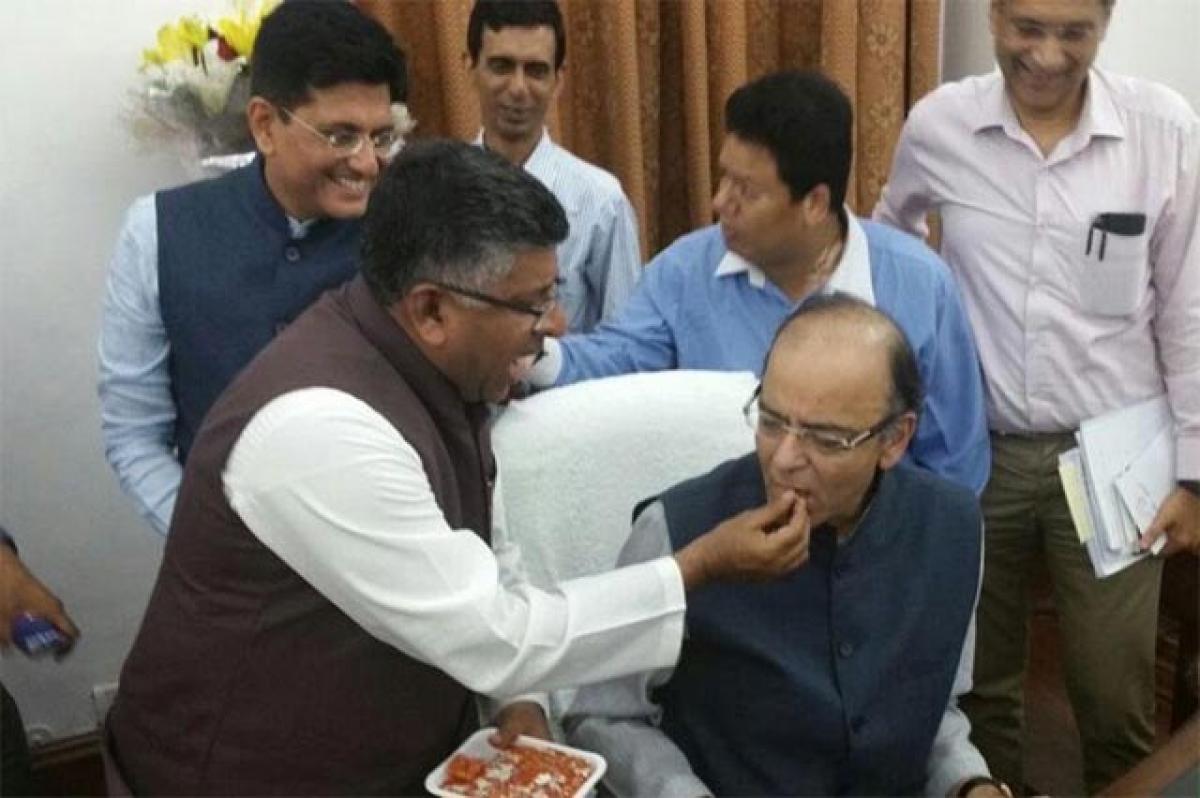It’s Constitution Amendment Bill, not GST

This effort to amend the Constitution was undertaken in the Lok Sabha earlier and an amendment was approved and sent to the Rajya Sabha for its endorsement.
Considerable confusion is being spread that the Rajya Sabha approved the GST Bill on August 3. In this context, it must be understood that, as the Indian Constitution stands at present, a Central Tax on Goods and Services cannot be imposed by the Central government. The Constitution needs to be amended to allow the legislation of a centralised Goods and Services Tax. What the Rajya Sabha did on August 3 was to approve such a Constitutional amendment which enables the Central government to bring a GST legislation.
This effort to amend the Constitution was undertaken in the Lok Sabha earlier and an amendment was approved and sent to the Rajya Sabha for its endorsement. The Rajya Sabha, in its wisdom, felt that the amendment passed by the Lok Sabha was inadequate and needed much improvement to protect the federal structure and the rights of the state governments enshrined in our Constitution.
The Rajya Sabha, therefore, elected a Select Committee from amongst its members to conduct this exercise and come with a set of recommendations, i.e., amendments to the Constitutional Amendment Bill which was approved by the Lok Sabha. This Select Committee presented its report containing the suggestions for amending the Constitutional Amendment Bill as passed by the Lok Sabha.
On the basis of the Select Committee’s recommendations, the government had to accept most of the substantive points and the government moved official amendments to the Lok Sabha legislation in the Rajya Sabha. The legislation to operationalise GST will be examined by the Empowered Committee of State Finance Ministers.
This will then be brought before the Parliament to be enacted as a law. This can, however, happen only after the Constitution has been amended. This is precisely what has currently been done by the Parliament. What was approved by the Rajya Sabha was the Lok Sabha Constitutional Amendment Bill as amended by the Rajya Sabha on August 3.
This will now go back to the Lok Sabha for its approval. This, however, will happen only after the Rajya Sabha Bill is sent to the President of India under whose direction it will go to the Lok Sabha for consideration and approval. After the Lok Sabha approves, this amended Bill will go back to the President of India who will then send it to all the elected State Assemblies in the country for their consideration.
Only when 50 per cent or more of the State Assemblies approve this Constitutional amendment with a two-third majority of the Assembly members present and voting, will this Bill be returned to the President of India who will then notify the amendment to the Constitution.
Until this procedure, as laid out in the Indian Constitution, of amending the Constitution is completed, the Central government cannot bring a GST Bill for consideration of the Parliament. Three legislations would be necessary to be approved by the Parliament for any GST regime to be put in place.
These are: (a) a Central GST (CGST) (b) an Inter State GST (IGST) and (c) a State GST (SGST). These will also have to be approved by the concerned State Assemblies.














